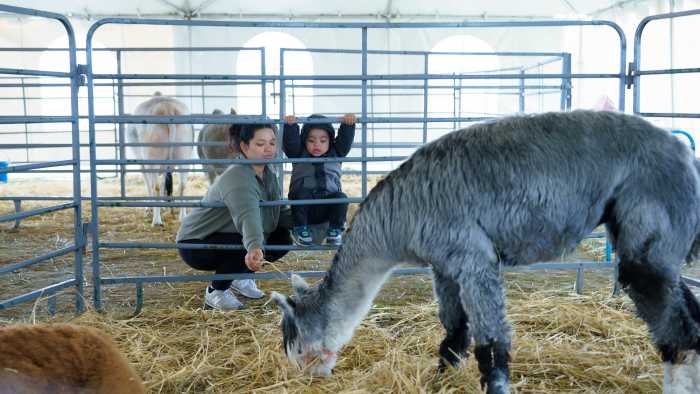
It’s time to consider summer camp options. We know what you’re thinking. It’s freezing outside! Who’s already thinking about camp? The truth is, now is the time to start thinking about where and how your child will be spending their summer. Summer camp open houses will be starting soon – March or even earlier – and many will be full not long after the registration period begins. To ensure your child makes the most of his or her summer vacation, start researching camps now and you will be ready when it’s time to sign up.
There are various types of summer camps, each offering youngsters something different. With camps to meet every interest, price range, and schedule, camping can be good for anyone! The following are some of the summer camp options parents can expect to encounter as they search for the right experience for their little campers.
Day camp
Day camps are not overnight camps, which means kids will return home each night rather than sleep over at camp. Day camps typically offer many of the activities people have come to associate with camps, including crafts, sports and even day-trips to experience local museums or attractions. Many day camps are co-ed, and counselors typically live within the community.
Sports camp
Some summer camps focus on a particular sport, catering to young athletes who want to further develop their athletic talents. Sports camps may feature guest lectures and lessons from notable local athletes and coaches, while some camps may provide instruction from current and/or former professional athletes. Some sports camps are overnight, while others are day camps.
Read Next | Let’s Talk About Camp! Begin Planning Kids’ Summer Recreation Now
Special interest camp
Some camps focus entirely on one particular activity that will serve the main interest of its campers. Campers will spend the majority of their time on this main activity. Types of special interest camps could include drama, nature, computer/technology, dance, music, art, or science/math. There are many special interest camp options right here in Staten Island.
Faith-based camp
Faith-based camps offer many of the same activities as more traditional summer camps, but do so while simultaneously offering campers the opportunity to celebrate and further explore their religious beliefs. Some faith-based camps may focus heavily on religion, incorporating faith into daily camp activities, while others may be more subtle with regard to integrating religious beliefs and lessons into camp activities.
Camp for children with special needs
There are many camps that accommodate children with special needs. Staff at these camps typically undergoes extensive training, which helps to calm some of the fears parents may have about leaving their children at camp. Facilities are often built to accommodate the specific needs of these campers.
Questions to Consider in Selecting a Day Camp:
- What is a typical day like? Can the children select their activities or do they follow a strict schedule?
- Are parent visits permitted? Can you “drop in” any time or is there a parent visit day?
- What is the ratio of counselors to campers? For day camps, the American Camp Association guidelines call for one staff member for every six campers ages 4 and 5; eight campers ages 6 to 8; one staff member for every 10 campers ages 9 to 14; and one staff member for every 12 campers ages 15 to 17. ACA standards also include the need to train staff to minimize 1:1 camper/staff interactions when out of sight of others.
- What are the qualifications and training requirements for the staff? Are there Counselors in Training (CIT)? You may want to consider a CIT program if your teen is aging out of the camping experience.
- What is included in the camp fee? Is there an extra charge for certain activities, camp shirt, food, lessons, field trips, transportation, extended care?
- Is there a lunch program, or do campers bring their own lunch, drinks, and snacks? Will it be kept in a refrigerator or cooler? Are their food/drink restrictions?
- Is transportation available, and is it door-to-door?
- Is there a before and/or after care program?
- Is there a pool or other water activities? If there is a pool, is there a lifeguard on duty? Are swimming lessons offered?
- How are discipline issues resolved?
- Is the camp accredited? ACA collaborates with experts from the American Academy of Pediatrics, the American Red Cross, and other youth-serving agencies to be sure required practices are current and sound.
- What is the camp policy regarding cell phones and other technology items brought to camp?
If you are considering a Day Camp, the American Camp Association (ACA) recommends considering your child’s interests, personality, and maturity level. Be certain to include your child in the decision-making process. Together with your child, research camp options and examine the information the camps provide. Many camps have web sites that include a good overview of what they have to offer. There may be photos, maps or virtual tours of the camp facility, sample daily schedules and menus, and information about the directors and key staff. As children become better acquainted with the camp experience and are more involved in the decision-making process, they will have less anxiety about going to camp.

Read Next | This Is Everything You Need to Find an Amazing Summer Camp Program in Staten Island







